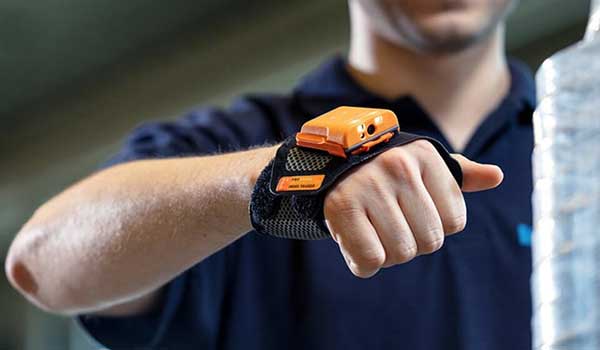3 in 4 warehouse workers say retaining the right people is key to productivity, while demand for staff soars by 40%.

CHICAGO and MUNICH – Maintaining productivity levels is a primary concern for nearly two-thirds (65%) of warehouse personnel. This is according to a survey which asked 800 warehouse workers across the US, UK and Germany what the most critical issues warehouse and logistics businesses have to address are. However, despite the emphasis on acquiring the right people, there are consistent problems.
As supply chain pressures tentatively ease, an Indeed Flex analysis of ONS data has found that demand for UK warehouse workers has risen by 43% compared with pre-pandemic levels. However, labor issues prevail. In June 2022, CILT UK found that 80% of organizations were experiencing staff shortages in the warehouse. In the U.S, warehouse jobs have dropped to the lowest level in 15 months. Warehousing companies have reduced employment by nearly 50,000 jobs since June, when overstocked retailers started paring inventories because of wavering consumer demand. The data suggests that the ongoing struggle to maintain productivity through retaining talent will continue in the coming months and years.
The report, which was commissioned by ProGlove, leader in wearable barcode scanners, found 42% of respondents flagging staff exhaustion, fatigue & physical or medical conditions as a crucial concern. Poor layout and space utilization is a top challenge for 43% of the respondents. And 42% think inaccurate inventory is a major concern.
To maintain or improve productivity, warehouse floor workers identified three key areas of need to maintain or improve productivity, including having the right people (76%), improving processes and workflows (72%) and optimizing the space & layout of the warehouse (66%).
This data highlights two key points: Enabling the human workforce, and giving them the tools to succeed, is the cornerstone of an efficient warehouse environment. Furthermore, floor workers have a clear desire to embrace solutions that will improve efficiency and optimize their workspace.
Commenting on the research, Ilhan Kolko, CPO of ProGlove, commented, “Resilience comes from a well-equipped, motivated and safe workforce with transparent and extensive knowledge of their roles and processes. Investing in human-centered technology, and seeking out efficiency gains built around the human worker, can provide the stability warehouses are looking for.”
Visit https://proglove.com/
About ProGlove
ProGlove is a World Economic Forum Technology Pioneer and builds the smallest, lightest, and toughest barcode scanners in the world. ProGlove’s industrial wearables connect the shopfloor worker to the Internet of Things. The wearables combined with ProGlove’s industry analytics software platform promote human-machine collaboration and drive the digitization across the shopfloor. ProGlove’s customers include some of the most iconic global industrial brands, pioneers and innovators in manufacturing and production, logistics and warehousing, retail and e-commerce, and post and parcel. Founded in 2014, the company employs more than 300 people from over 30 countries with offices in Chicago, Munich (Germany), and Belgrade (Serbia). Learn more at www.proglove.com.
Tune in for a timely conversation with Susan Spence, MBA, the new Chair of the ISM Manufacturing Business Survey Committee. With decades of global sourcing leadership—from United Technologies to managing $25B in procurement at FedEx—Susan shares insights on the key trends shaping global supply chains and what they mean for the manufacturing outlook.